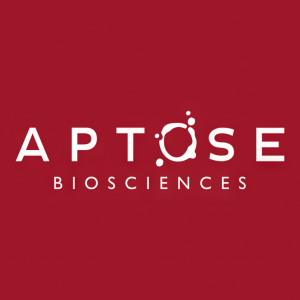Aptose Announces First AML Patients Dosed with Tuspetinib Triplet Frontline Therapy in TUSCANY Trial
Rhea-AI Summary
Aptose Biosciences (NASDAQ: APTO, TSX: APS) has initiated dosing of the first patients in its TUSCANY Phase 1/2 study, testing tuspetinib (TUS) in combination with venetoclax (VEN) and azacitidine (AZA) as a frontline triple therapy for newly diagnosed acute myeloid leukemia (AML) patients.
The TUS+VEN+AZA triplet therapy aims to provide an improved frontline treatment option that is effective across diverse AML populations. Earlier APTIVATE trials showed that TUS, both as a single agent and combined with VEN, demonstrated favorable safety and broad activity in relapsed or refractory AML patients, including those with prior-VEN and prior-FLT3 inhibitor therapies.
The TUSCANY study will evaluate various doses and schedules of TUS with standard dosing of azacitidine and venetoclax in AML patients ineligible for induction chemotherapy. Starting at 40mg once daily, the trial plans to enroll 18-24 patients by mid-late 2025 across multiple U.S. sites.
Positive
- Expansion into frontline therapy market with triple combination treatment
- Previous trials showed favorable safety and broad activity across diverse AML populations
- Potential to treat larger AML population regardless of mutation status
Negative
- Trial completion not expected until mid-late 2025
- initial enrollment of only 18-24 patients
News Market Reaction
On the day this news was published, APTO gained 3.19%, reflecting a moderate positive market reaction.
Data tracked by StockTitan Argus on the day of publication.
TUS+VEN+AZA triplet has potential as frontline therapy to treat large, mutationally diverse populations of AML
SAN DIEGO and TORONTO, Jan. 09, 2025 (GLOBE NEWSWIRE) -- Aptose Biosciences Inc. (“Aptose” or the “Company”) (NASDAQ: APTO, TSX: APS), a clinical-stage precision oncology company, today announced dosing the first set of patients in the TUSCANY Phase 1/2 study with tuspetinib (TUS) in combination with venetoclax (VEN) and azacitidine (AZA) as a frontline triple drug combination (triplet) therapy for patients newly diagnosed with acute myeloid leukemia, or AML.
Tuspetinib based TUS+VEN+AZA triplet therapy is being advanced in the TUSCANY Phase 1/2 trial with the goal of creating an improved frontline therapy for newly diagnosed AML patients that is active across diverse AML populations, durable, and well tolerated. Earlier APTIVATE trials of TUS as a single agent and in combination as TUS+VEN demonstrated favorable safety and broad activity in diverse relapsed or refractory (R/R) AML populations that went beyond the more prognostically favorable NPM1 and IDH mutant subgroups. Responses to TUS were also observed in those with prior-VEN and prior-FLT3 inhibitor (FLT3i) therapies, those with highly adverse TP53 and RAS mutations, and those with mutated or unmutated (wildtype) FLT3 genes. Tuspetinib is a convenient once daily oral agent, and the TUS+VEN+AZA triplet has the potential to treat the larger AML population in a mutation agnostic manner, not just narrow subpopulations.
“We’re excited that our first several patients on the TUSCANY trial have received TUS+VEN+AZA,” said Rafael Bejar, MD, PhD, Aptose’s Chief Medical Officer. “TUS+VEN+AZA triplet therapy holds the promise of delivering high response rates and longer survival to newly diagnosed AML patients, while avoiding toxicities seen with other agents, thereby broadening the application of triplet therapy to more AML patients, including those with adverse disease features.”
TUSCANY: TUS+VEN+AZA Triplet Phase 1/2 Study
The TUSCANY triplet Phase 1/2 study is designed to test various doses and schedules of TUS in combination with standard dosing of azacitidine and venetoclax for patients with AML who are ineligible to receive induction chemotherapy. TUS will be administered in 28-day cycles, beginning at 40mg once daily, with dose escalations planned after a safety review of each dose level. Multiple U.S. sites are enrolling in the TUSCANY trial with anticipated enrollment of 18-24 patients by mid-late 2025.
More information on the TUSCANY Phase 1/2 study can be found on www.clinicaltrials.gov (here).
About Aptose
Aptose Biosciences is a clinical-stage biotechnology company committed to developing precision medicines addressing unmet medical needs in oncology, with an initial focus on hematology. The Company’s lead clinical-stage, oral kinase inhibitor tuspetinib (TUS) has demonstrated activity as a monotherapy and in combination therapy in patients with relapsed or refractory acute myeloid leukemia (AML) and is being developed as a frontline triplet therapy in newly diagnosed AML. For more information, please visit www.aptose.com.
Forward Looking Statements
This press release may contain forward-looking statements within the meaning of Canadian and U.S. securities laws, including, but not limited to, statements relating to the therapeutic potential and safety profile of tuspetinib (including the triplet therapy) and its clinical development, the anticipated enrollment rate in the TUSCANY trial and the timing thereof, as well as statements relating to the Company’s plans, objectives, expectations and intentions and other statements including words such as “continue”, “expect”, “intend”, “will”, “should”, “would”, “may”, and other similar expressions. Such statements reflect our current views with respect to future events and are subject to risks and uncertainties and are necessarily based upon a number of estimates and assumptions that, while considered reasonable by us are inherently subject to significant business, economic, competitive, political and social uncertainties and contingencies. Many factors could cause our actual results, performance or achievements to be materially different from any future results, performance or achievements described in this press release. Such factors could include, among others: our ability to obtain the capital required for research and operations and to continue as a going concern; the inherent risks in early stage drug development including demonstrating efficacy; development time/cost and the regulatory approval process; the progress of our clinical trials; our ability to find and enter into agreements with potential partners; our ability to attract and retain key personnel; changing market conditions; inability of new manufacturers to produce acceptable batches of GMP in sufficient quantities; unexpected manufacturing defects; and other risks detailed from time-to-time in our ongoing quarterly filings, annual information forms, annual reports and annual filings with Canadian securities regulators and the United States Securities and Exchange Commission.
Should one or more of these risks or uncertainties materialize, or should the assumptions set out in the section entitled "Risk Factors" in our filings with Canadian securities regulators and the United States Securities and Exchange Commission underlying those forward-looking statements prove incorrect, actual results may vary materially from those described herein. These forward-looking statements are made as of the date of this press release and we do not intend, and do not assume any obligation, to update these forward-looking statements, except as required by law. We cannot assure you that such statements will prove to be accurate as actual results and future events could differ materially from those anticipated in such statements. Investors are cautioned that forward-looking statements are not guarantees of future performance and accordingly investors are cautioned not to put undue reliance on forward-looking statements due to the inherent uncertainty therein.
For further information, please contact:
Aptose Biosciences Inc.
Susan Pietropaolo
Corporate Communications & Investor Relations
201-923-2049
spietropaolo@aptose.com








